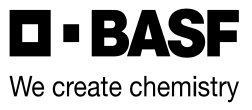Serifel
Group 44
An innovative biological fungicide with multiple modes of action that forms a shield of protection on plants’ surfaces to protect against disease.
- Highly effective, biological fungicide for a wide range of crops
- Multiple unique modes of action form a protective shield against a broad-spectrum of diseases
- Complements both chemistry-based solutions and organic production
- Zero PHI, 4-hour REI and 36-month shelf life offer new flexibility and choice to address crop production challenges
- Sets the standard for product purity, performance and quality
Labels & SDS
9 AVAILABLE
Labels & SDS
Benefits of Serifel
- Serifel’s active ingredient is Bacillus amyloliquefaciens strain MBI600. It is a beneficial spore-forming, rod-shaped bacterium, that colonizes the developing leaf surface of plants.
- Serifel works best as a preventative treatment before disease pathogens have established on the plant. Application before the major disease pressure gives Serifel time to germinate, colonize the plant surface and produce its disease fighting metabolites.
- Serifel forms a “shield of protection” against a broad spectrum of plant pathogens thanks to three modes of action.
- Production of anti-fungal metabolites: Serifel produces specific metabolites that prevent different species of pathogens from germinating. The metabolites cause the pathogen spores and growing hyphae to collapse, by disrupting their cell membrane.
- Competition for space: Moreover, by being the first to occupy the limited space on the plant, Serifel physically excludes plant pathogens from colonizing on the plant foliage.
- Competition for resources: Serifel also depletes the supply of nutrients on the plant surface so that pathogen spores are starved to death.
Product Info & Application Guide
When to Apply
- Refer to label for complete details.
How Much to Apply
- Refer to label for complete details.


